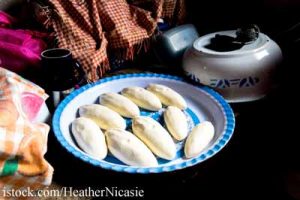Bakersfield Now is reporting that more than 30 packages of Mexican cheese were seized from a woman’s home this week, as part of the ongoing investigation into the Salmonella outbreak. Family members of the woman bring cheese from Sinaloa, Mexico. The cheese is being tested for pathogens, according to the report. Seven people in Kern County, which includes Bakersfield, have been sickened with Salmonella infections from eating illegal Mexican cheese.
 The Salmonella outbreak, which was last mentioned by the California Department of Public Health (CDPH) in March 2016, has sickened at least fifty people across the state with three different strains of the pathogenic bacteria. Officials believe that the common food is home made, soft cheese products.
The Salmonella outbreak, which was last mentioned by the California Department of Public Health (CDPH) in March 2016, has sickened at least fifty people across the state with three different strains of the pathogenic bacteria. Officials believe that the common food is home made, soft cheese products.
The Director of CDPH and State Public Health Officer Dr. Karen Smith said in that statement, “These cheeses are often made with raw, unpasteurized milk and under insanitary conditions. We are seeing a dramatic increase in the number of reported Salmonella cases, particularly in the Hispanic community. Department spokeswoman Michelle Corson told reporters, “the one connection is all these persons have reported eating illegal Mexican cheese from an unapproved vendor. They’re manufacturing and selling cheese out of their home, and in unapproved, typically unsanitary conditions.”
In California and many other states, it is illegal to sell cheese and other food products in an unlicensed facility. The woman who had her cheese seized said it was a hard cheese, not soft.
The symptoms of a Salmonella infection include fever, abdominal cramps, nausea, vomiting, chills, headache, muscle pains, and diarrhea that may be watery and/or bloody. Symptoms usually begin six to seventy-two hours after exposure to the bacteria. Most people get better in about a week, but some people become so ill they must be hospitalized. Those who are most likely to suffer serious complications from this infection include the elderly, the very young, pregnant women, people with compromised immune systems, and those with chronic illnesses.
To avoid a Salmonella infection, do not buy cheeses from unlicensed vendors, particularly from people’s homes or from farmer’s markets. Especially avoid the soft cheeses that are made with raw, or unpasteurized, milk.




